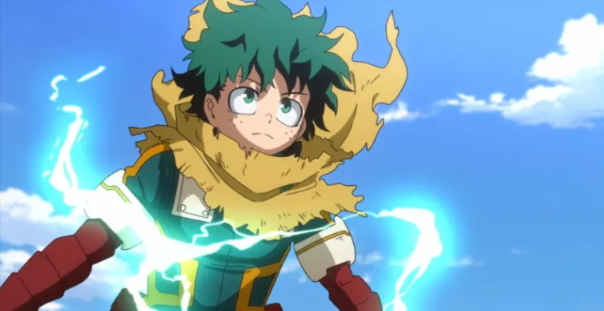Posted by Gojasu on Oct 23rd 2025
Anime Movies Being Canon: The New Norm?
I you've been deep in the anime scene lately, you might have noticed a shift: anime movies aren’t just “cool side stories” anymore—they’re starting to feel like a legit part of the main storyline. Yeah, that’s right. Canon movies are slowly becoming the norm, and it’s changing the way fans watch, hype, and even argue over their favorite series. Let’s break it down.

A Quick History: Canon vs. Filler Movies
For the longest time, anime movies were often just… extra content. They were flashy, fun, but mostly non-canon. Take Dragon Ball Z movies for example: Cooler’s Revenge? Amazing fight scenes. But did it impact the story of DBZ at all? Not really. Same goes for Naruto movies like Naruto Shippuden: The Lost Tower—cool animation, epic fights, but mostly standalone stories that didn’t matter in the grand scheme.
On the other hand, we’ve had canon movies that actually mattered:
-
Demon Slayer: Mugen Train – This isn’t just a movie; it’s literally the continuation of the TV series. It picks up where the anime left off and sets up the next arc. No “did I miss this in the series?” moment here.
-
One Piece: Strong World – Oda himself was heavily involved in making this canon story. It fit seamlessly into the series’ timeline.
-
My Hero Academia: World Heroes’ Mission – While some debate its impact, Horikoshi confirmed it’s canon and affects the characters’ development.
So why the shift? Simple: fans want story continuity, and studios are seeing that movies can be more than just cash grabs—they can actually drive engagement.
Pros of Making Movies Canon
-
Next-level storytelling
When movies are canon, they aren’t just random battles; they push the story forward. Characters grow, plotlines evolve, and fans get more meaningful content. -
Boosts hype and community energy
Imagine everyone camping out for a new canon movie the same way we do for a season finale. Cosplays, fan theories, TikToks—it’s a content goldmine. -
Revenue AND relevance
Canon movies naturally pull in fans because skipping them means missing part of the story. That’s both ticket sales and merch sales on steroids. -
Better adaptation quality
Movies generally have bigger budgets than regular episodes. If the story is canon, it encourages studios to invest more, giving fans cleaner animation, insane fight sequences, and cinematic storytelling.
Cons of Canon Movies
-
Accessibility issues
Not everyone has time or money to catch a movie in theaters. If skipping it means missing part of the story, some fans may feel left out. -
Story pacing pressure
Adding movies to the canon timeline can mess with pacing. Studios have to carefully juggle the TV series schedule with the movie release. Otherwise, fans might feel overwhelmed or confused. -
High expectations = high risks
When a movie is canon, every fan expects it to be epic. If it flops in story or animation, backlash can be brutal. -
Possible burnout
For both studios and fans. Canon movies may push more content per year, leading to “too much, too fast” syndrome

What This Means for the Future of Anime
If canon movies keep gaining traction, we could see a future where skipping a movie is like skipping an episode. Think of it like watching Mugen Train before starting the next Demon Slayer arc—you’re basically required to stay on top of the story.
This also opens doors for more multi-platform storytelling. Anime could become a hybrid experience: TV series, movies, and maybe even interactive content that all fit together. Imagine an Attack on Titan movie that bridges seasons while teasing the next plot twist—it’s not just hype; it’s part of the world-building.
Studios might also invest more in original plots for movies, making them integral rather than filler. That could mean longer, better-developed arcs and richer narratives. Basically, anime is leveling up from “TV episodes + random movies” to a cinematic universe vibe.
The Takeaway
Canon movies aren’t just a trend—they’re shaping the way anime is produced and consumed. Fans get deeper stories, studios get higher engagement, and anime itself grows more cinematic and immersive. Sure, there are hurdles, but the potential is insane.

